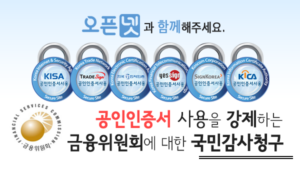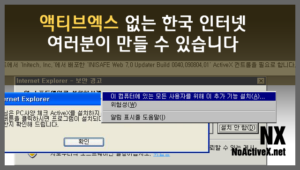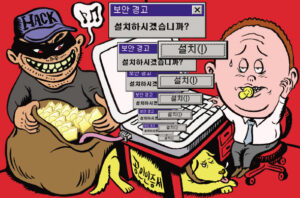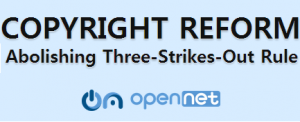Press Release
Open Net Welcomes the Proposal of Bills to Abolish Criminal Defamation for True Statements to Promote Freedom of Expression
Recently, multiple bills have been proposed to abolish criminal defamation for true statements....

Citizens’ Network for Constitutional Amendment Lecture Series <Constitutional Amendment Forum to Guarantee Fundamental Information Rights in the Digital Age>
Citizens' Network for Constitutional Amendment Lecture Series <Citizen-Led Constitutional...
Open Net Files Fair Use Opinion in Press Photo Copyright Case Involving Independent Media
KS Park, Executive Director of Open Net Korea and professor at Korea University, submitted an...
Calling on the Korean Government to Decline Accession to the UN Cybercrime Convention
Open Net has issued a statement opposing the UN’s Cybercrime Convention and calling on the South...
Presentation of the Research Report on the Need for Digital Media Literacy Education for Older Populations
Open Net Korea, in collaboration with the Inclusive Society Research Institute, conducted a survey...
LITIGATION
Overseas experts lean in on Julian Assange-type prosecution of an opposition politician for sharing legally acquired diplomatic secrets
On July 1, 2024, the University of California at Irvine Law School's International Justice Clinic,...
US Experts lean in on Louis Vuitton’s trademark suit against Korean bag repair shops
On August 21, 10 US-based law professors with expertise in intellectual property law filed a joint...
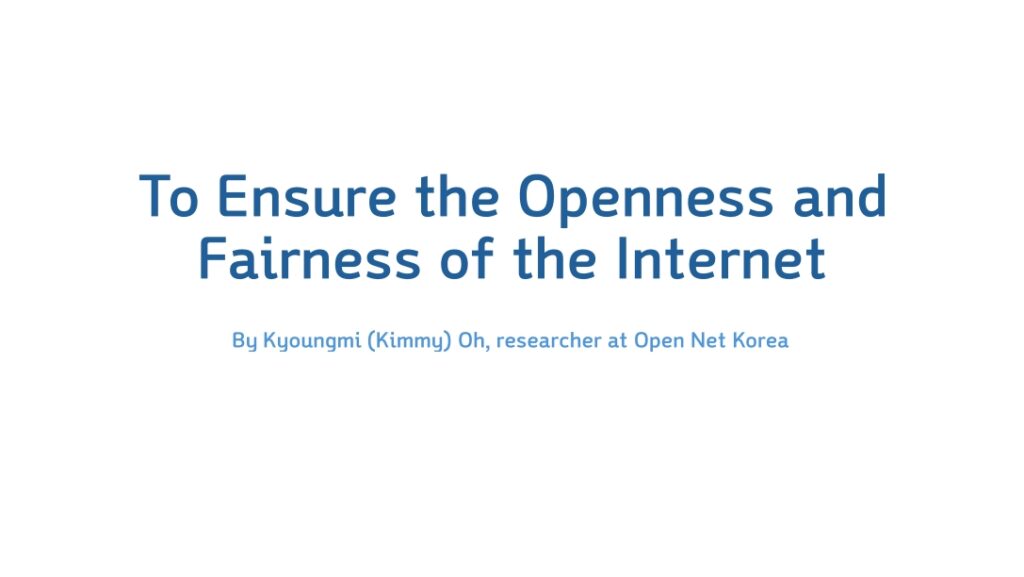
To Ensure the Openness and Fairness of the Internet
by Kyoungmi (Kimmy) Oh | Researcher at Open Net Korea Kyoungmi (Kimmy) Oh, a researcher at Open...
EFF Submits an Amicus Brief in Open Net’s Constitutional Challenges to “the Internet Censorship and Surveillance Act”
The international digital rights organization Electronic Frontier Foundation (EFF) submitted an...
Standing in solidarity with the Women and People of South Korea as the Government Denies Sexual and Reproductive Health Rights
Women On Web, an online organization committed to providing vital information on sexual and...
OPEN SEMINAR
![[2024 Democracy Lab Conference] Open Net Co-Hosts and Participates in the Session: “Democracy in the Platform Era: Challenges and Aspirations”](https://www.opennetkorea.org/wp-content/uploads/et_temp/image-722x1024-183244_722x675.png)
[2024 Democracy Lab Conference] Open Net Co-Hosts and Participates in the Session: “Democracy in the Platform Era: Challenges and Aspirations”
Date and Time: Friday, November 22, 2024, 2:00 PM - 4:00 PM Venue: Roh Moo-Hyun Civic Center,...

CSOs gather to discuss HR-friendly technical standards; Open Net stresses on end-to-end principle
Open Net co-hosted the following event with UN Office of Higher Commissioner on Human Rights :...
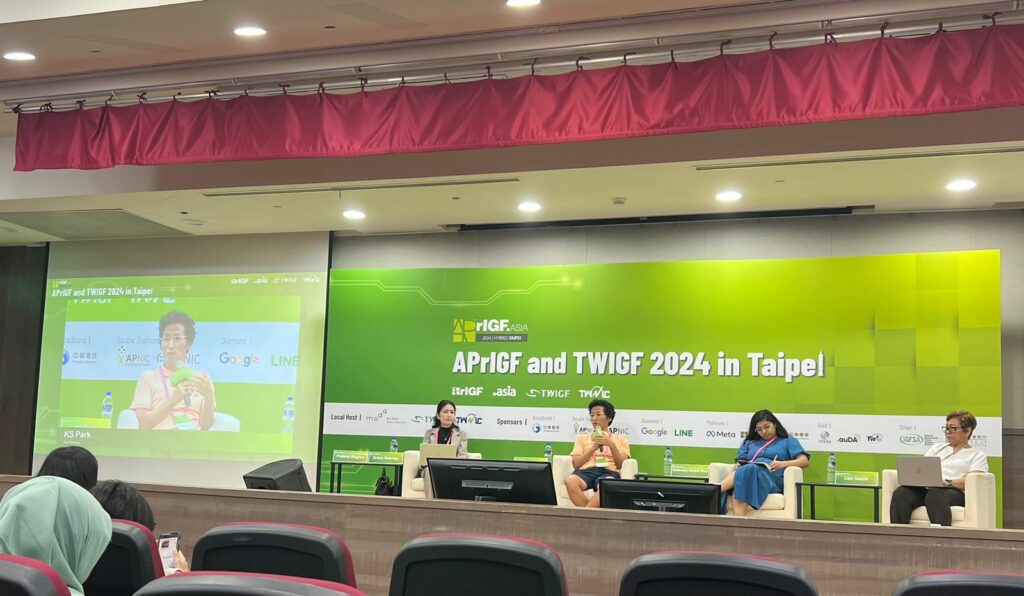
Platform accountability in South Asia & SEA – APrIGF2024.
On August 21, 2024, K.S. Park, Director, Open Net, spoke at the above titled session at APrIGF....
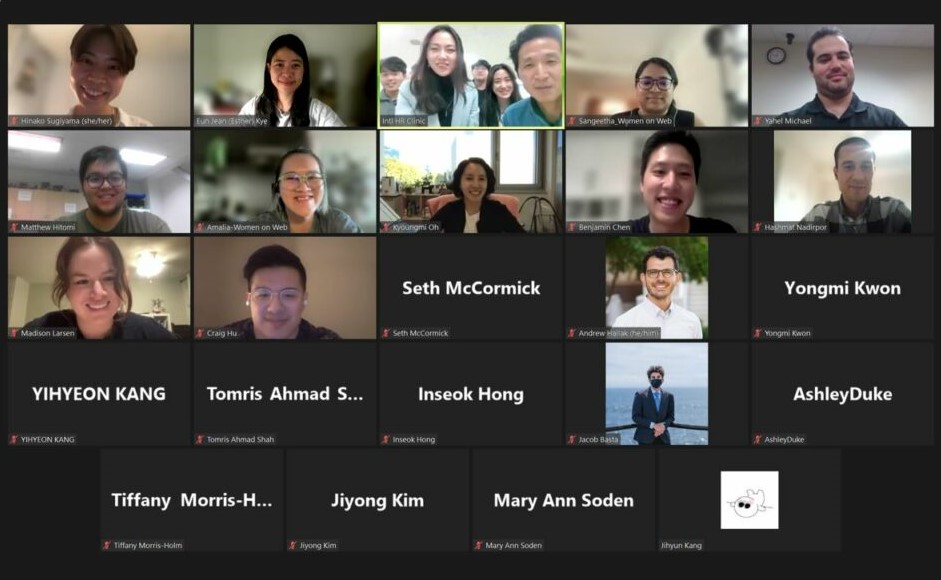
Open Net Co-host Webinar on the Appeal against the Website Blocking of Women On Web by KCSC
On 9 November 2023, the Korea University Law School's International Human Rights Clinic (hereafter...
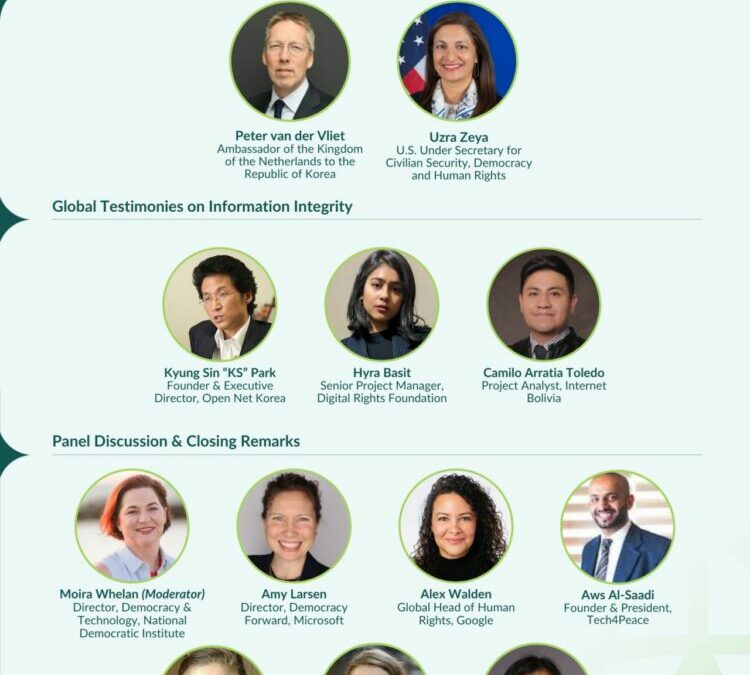
Summit for Democracy Seoul: Freedom Online Coalition workshop on information integrity
On March 19, 2024, Open Net's Executive Director K.S. Park spoke at a Freedom Online Coalition...
COURT ACTIONS
Open Net Won the Trial Against KT for Disclosure of Subscriber’s Personal Information
Please read the Korean original here.
Open Net Won the Personal Information Disclosure Lawsuit against KT
Open Net General Counsel Kelly Kim won the lawsuit for the disclosure of her personal information...
Open Net Successfully Defended the Police Defamation Victim HONG Ga-hye at the Supreme Court
Open Net provided legal support to Ga-hye Hong, who was accused of "defamation of the maritime...
Open Net Filed a Constitutional Challenge against the Mandatory Mobile Phone Registration Law
Please read the Korean original here.
Court of appeals confirmed that the blocking of “North Korea Tech” website is unlawful
Court of appeals confirmed that the blocking of “North Korea Tech” website is unlawful The right...
education
Demand to Halt the Rushed and Unilateral Passage of the Act on Promotion of Information and Communication Network Utilization and Information Protection.
On December 10th, Open Net and 9 civil society organizations issued a joint statement calling for...
OpenNet Secures Not Guilty Verdict in Case Where Individual Was Criminally Charged for Using Free Font
Cases Where Only "Non-Commercial Use ONLY" Terms Are Violated Should Not Face Criminal...
[Statement] The National Assembly’s National Policy Committee Must Include Compensation for Personal Data Breaches Within the Scope of Collective Actions
On December 15, the 1st Legislative Subcommittee of the National Assembly’s National Policy...
Luxury Trademarks vs. Consumers’ Right to Repair and Refashion – A public hearing scheduled at the Supreme Court
Louis Vuitton has filed trademark infringement lawsuits against small, independent repair...
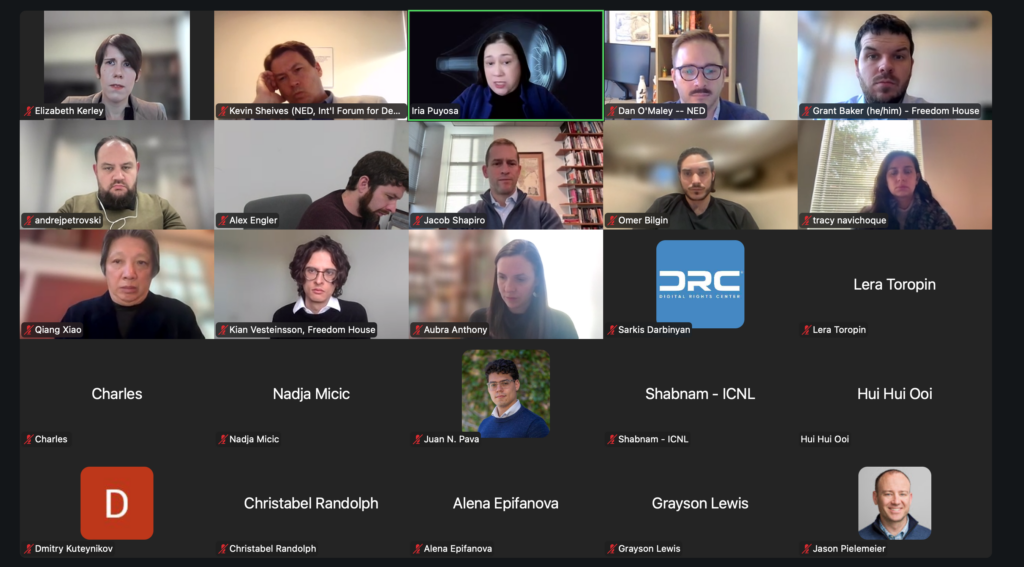
Open Net speaks at NED event on the risks of “AI sovereignty”
K.S. spoke at an NED expert consultation titled Democracy in an Era of “AI Sovereignty” on...
POLICY RESEARCH
[Press Conference] Open Net · Institute for Inclusive Society Announces Research Results on “Digital Literacy Problems and Solutions for the Elderly” (May 23)
You can read the Korean original here.
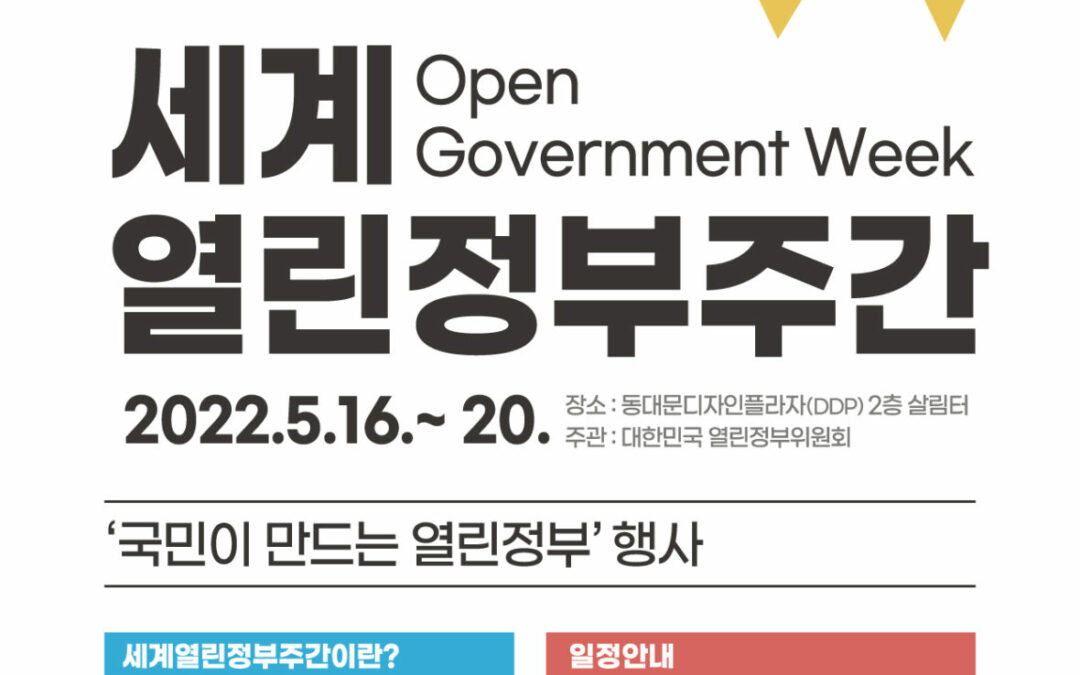
Open Net Co-hosts Open Government Week as Part of the Open Government Partnership
You can read the Korean original here.

Part 1 of Open Net’s Special Lecture Series on Media Literacy (14:00 April 5, online)
You can read the Korean original here.
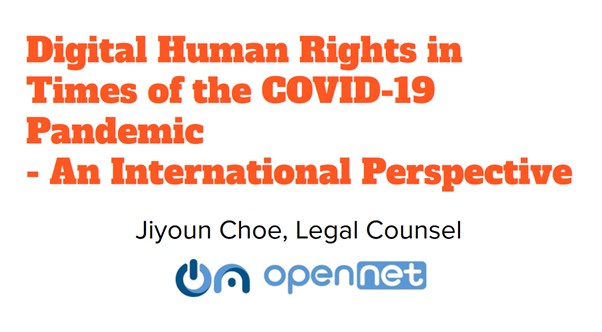
Digital Human Rights in Times of the COVID-19 Pandemic – An International Perspective (TWIGF 2021)
The following is Jiyoun Choe’s presentation at the TWIGF 2021 as part of a panel in the ‘Digital...
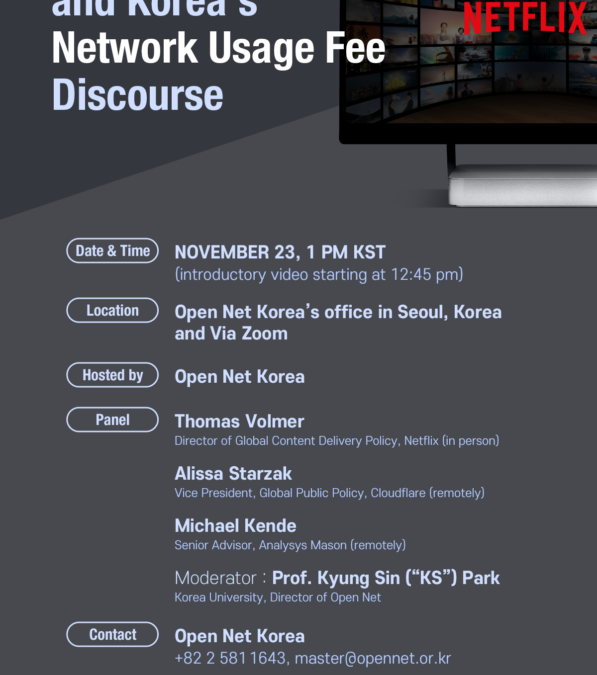
Webinar: Global Internet Interconnection Practices and Korea’s “Network Usage Fee” Discourse
The success of Squid Game and Netflix have raised the cries of “free-riding on internet” against...
CAMPAIGN
Stop Internet Censoring
We have seen many attempts to censor the Internet under the pretext of copyright protection. Notorious attempts are SOPA and PIPA of 2012, which triggered the largest online protest in history and was eventually withdrawn, and ACTA, a plurilateral trade deal killed by the European Parliament in 2012. Now, Korean government tries to enact a much stronger internet censoring rule. If it passes the legislative body, a copyright protection agency may cut off access to websites that the agency views as copyright infringing. The concerns over mass surveillance and privacy vulnerabilities by the proposed rule are widespread amid the government’s new drive to block “https” traffic by SNI eavesdropping (See, press release of Korea Communication Commission on February 12, 2019 and press release of MCST on May 2, 2018, both in Korean).
Intermediary Liability Campaign
Korean law (Copyright Act Article 103, Information Communication Network Act Article 44-2) requires intermediaries to take down all content for which anyone sends a takedown notice, regardless whether the content violates any right or law, not as a condition of qualifying for a safe harbor but as a positive obligation. As a result of this ‘mandatory’ notice-and-takedown system, the intermediaries are forced to take down thousands of contents daily which they believe to be perfectly lawful. Also, Korean laws require some intermediaries like P2P and cyberlockers to implement ‘technical measures’ to filter out copyright infringing material (Copyright Act, Article 104) and obscenity (Telecommunications Business Act Article 22-3 Paragraph 1), and requires all intermediaries to implement technical measures to filter out child pornography (Children and Juvenile Sex Protection Act Article 17). These ‘technical measures’ requirement ends up requiring the intermediaries to monitor each and every third party content posted on their services, turning the Internet into a space open to only those contents implicitly permitted by the intermediaries.
Open Net Korea has engaged in various efforts to bring the Korean law into compliance with the international norm, including but not limited to participating in the Steering Committee of the Manila Principles for Intermediary Liability, co-authoring a Good Practice Guideline for Intermediary Liability Regime published by the Network of Centers for Internet and Society, and calling the international community to write to the relevant officials.
Open Payment Campaign
Currently, the law requires all online payments above 300K Korean won (about US$300) to be signed by so-called “accredited certificates”, which are backed only by a Korean government agency operating as a root CA but none of the internationally recognized certificate accreditation agencies and therefore require various plugins to be downloaded from various vendors (most often through Active X technology due to the 90% plus dominance of Internet Explorer in the country) enabling and protecting the certificates. Such monolithic “closed” payment rule made the Korea-based e-commerce inaccessible for overseas customers and very inconvenient for domestic customers and indoctrinated Korean customers into a dangerous habit of accepting downloads of unknown origins, who therefore became easy targets for pfishing and other financial frauds. Open Net calls for the dismantling of the payment rule mandating use of the government-backed-certificates that are not really “accredited” in any global sense.
In 2013, Open Net ran a petition drive to file a Citizens’ Audit on the Korean Financial Services Commission responsible for implementing the closed payment rule, and obtained the sponsorship of more than 300 signatories who signed on-line at this site.
In 2013, Open Net ran a grassroots petition drive here to demand that the authorities overhaul the online payment rule so that the Korean net users can make payments without the nail-biting, computer-freezing, caution-numbing downloading of all the plugins. Several thousands have signed on putting pressure on the legislators and authorities.
In the latter half of 2013, Open Net lobbied for a Digital Signature Act amendment bill allowing digital signatures to be approved by internationally recognized root authorities and a Electronic Financial Transactions Act amendment bill requiring the Financial Services Commission rule-making to be technology-neutral in accordance with the Basel Principles. Here is the campaign headquarter page from which people will gather information and write mails, Twits, FB entries alerting the relevant lawmakers.
“Real” Child Abuse Prevention Campaign
The law punishes virtual images of imaginary children such as in animation and adult-actor films under the same legal scheme as child pornography made of video-recording or “morphing” of real children, which carry mandatory minimum sentence of 5 years for production and, among other things, 10 years of employment ban and 20 years of residential address tracking, not to mention the stigma of “child sex offenders”. Such law resulted in police actions focused on online uploading and downloading of files at the expense of depleted resources for pornography involving real children, which ironically ended up indictment of juvenile computer users as “child sex offenders”. Open Net calls for amendment of the Child and Juvenile Sexual Abuse Prevention Act to make the law serve its real purpose.
Campaign to Strike Out the Three Strikes Rule
In Korea, the copyright Three-Strikes-Out Rule came into effect on July 23, 2009 and gave the government a power to disconnect users from the Internet in the name of copyright protection. So far, although no one has been disconnected from the Internet, 408 website accounts have been shut down and 468,446 warnings or takedowns have been executed by the South Korean government (The Ministry of Culture and the Korean Copyright Commission, an entity empowered to do so without judicial scrutiny under the three-strikes rule). There is no prior judical scrutiny. The government has the full discretion in determining whether the postings or the user accounts are to be taken down or not. This is administrative censorship done fast and cheap for the rightholders, however, suppressing freedom of expression and communication and Internet users’ fundamental right to access, and endangering the future of the free and open Internet.

